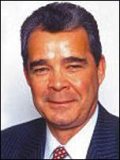Q & A with Alec Sanguinetti, Secretary-General of the Caribbean Hotel Association (CHA)


by Jose Carlos de Santiago (ITB 2008 - Berlin)
Q.- First of all we’d like to know what the position of CHA really is as to the moving of its offices from Puerto Rico to Miami.
A.- Let me clarify for you. What’s taking place is a change in how we do business, let alone the need to achieve the financial sustainability of the organization. We have outsourced functions of the Accounting Department that was based in Puerto Rico.
It’s now outsourced in Puerto Rico. We’re outsourcing it in Puerto Rico and we’re saving a substantial amount of money. Unfortunately, there have been some reductions in the workforce, but the financial stability of the organization for all its members is still there. So, it’s just a change in the doing of functions, but CHA as an organization still remains registered in Puerto Rico, so it’s there where it really is.
Q.- How many people were laid off?
A.- In all, thirteen positions were laid off.
Q.- How important is the office in Miami for CHA?
A.- We always had an office in Miami, a marketing and commercial office. If you look at the marketplace, all of the major Caribbean hotel companies and other tourist interests have offices located in Miami or in the Coral Gables’ South Florida area. So, what we’re doing is nothing different to what other organizations do, even some of our members, for instance, do because all of them have offices in the Miami area. The advantages are in the marketplace since most offices are there and our strategic partners are all there. As much as 68 percent of CHA’s revenues come outside of membership dues, like events, strategic partnerships, sponsorships, etc.
Q.- Where’s the focus of both CHA and CTO on the European market right now?
A.- Under the Caribbean brand, we’re promoting the Caribbean as a region, a very diverse region with some 35 different destinations, with different languages, cultures, etc. We’re repositioning ourselves as a region where you can find what you’re looking for in terms of sun, sand and sea, honeymoons, ecotourism. And we’re encouraging the individual islands to develop their own unique attractions under the Caribbean brand. We have to make sure that we maintain our competitive position.
Q.- Last year different people working for CHA paid visits to Palma de Majorca in Spain. What do you make of those visits and how meaningful they actually were?
A.- It was very positive because, as you know, several of the Spanish hotel chains have moved out of the markets in which they started, like Cuba, the Dominican Republic, Cancun and Cozumel, and they have now expanded. We now see operations in Aruba, in Jamaica and on Paradise Island. If you look at Jamaica alone, by the end of 2009 there will be over 10,000 Spanish rooms available on the north coast of Jamaica. That’s a lot of rooms, so it’s important that these new hotels coming into the non-traditional areas in the Caribbean become part of CHA, as they are in their traditional areas, and become involved in the local hotel associations. In addressing our advocacy programs and everything like that, they can participate in those associations. That was very successful and those discussions are ongoing.
Q.- What’s the communication and training approach of your organization and the different members of it as far as the different European markets are concerned?
A.- In terms of training, CHA has now moved from being a supplier of training to be a facilitator of training because over the years we had several national training institutions established in the Caribbean and several international training institutions, universities that offered training programs. Of course, they have the expertise for it, so what we do now is to facilitate and connect our members with those institutions. For example, we now have a tremendous program going on with American Express and last year over 600 individuals entered service in the Caribbean, who were trained in this program and were certified in the different categories in which they work.
We have the Caribbean Hotel Association Education Foundation. We prepare there our scholarship program and we have students in the United Kingdom on scholarships also. We want now to expand that into other countries in Europe and have more of an exchange so that there’ll be a better understanding of the needs of the European visitors.
Q.- Spanish tourism universities are among the finest colleges in the world today. Are you planning to expand your programs into those Spanish institutions as well?
A.- There’s no doubt about their excellent work. You take, for example, the tourism school in Majorca, which I saw during my visit, and there are various meetings taking place this week in Guyana with Spanish authorities and the objective is to establish a tourism training school in the Caribbean. The government of Spain has been involved in trying to bring this about.
Q.- What do you think of FITUR, Spain’s International Tourism Fair? What’s the new position that both CHA and CTO have now as far as FITUR is concerned? My question is based on the fact that CHA didn’t have a stand at this year’s FITUR.
A.- Let me try to clarify this for you. We don’t have a stand at ITB either. Sometimes when you have a stand you ought to stay there and you can’t meet all the people you need to see. CTO had a big presence this years with the Caribbean and I believe we’ll see more and more of the Caribbean at FITUR in coming years. That will happen and we’ll certainly be there next year, not with a stand, but with our presence.
We have to recognize that Spanish hotel chains, that have been operating dominantly in Cuba, the Dominican Republic and Cancun, for instance, they are now coming into Jamaica. It’s easy to establish a Caribbean Village at ITB and WTM in London. Everything is relative and I think what we need to do is to really start concentrating on building a village. And everything starts with a first step. Maybe the first village may not have ten Caribbean countries, but if it has five then we made a first step.
Q.- The problem is that people working in the different Caribbean countries don’t go to Spain, so people in Spain don’t know much about these countries. In Spain we call that “the fish that bites its own tail.”
A.- In English we call that the chicken-and-egg situation. I think it’s a very valid point but we at CHA will be concentrating on FITUR next year and we’re going to see what we can do jointly under this Caribbean brand.
Q.- I think it’ll be valid as well to give you an example in an effort to paint a brighter picture. A couple of years ago, Aruba received just 1,000 Spanish visitors. Last year alone, the number of Spanish visitors to Aruba soared to 41,000.
A.- Very well. That shows a tremendous potential. There’s no intent to ignore the Spanish market, not at all. As you know, CTO and CHA formed the Caribbean Tourism Development Company and we now need to get first things established, so we’ll now be paying much more attention to the European area. I’ve talked with CTO’s Vincent (Vanderpool) about this and we agree that we need to do is to establish a small of people to reach out to FITUR and see what we can do together, similar to what we’ve been doing here at ITB. And I know we may have your support on this. I understand your frustration because this is a huge, huge market we’re talking about.














